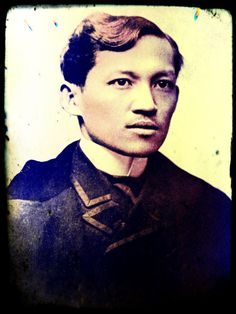 |
| Rizal, A Maharlikan |
So, and again, who is Dr. Jose Rizal? Is he a Maharlikan? Through his writings, Rizal often claimed of being one citizen of a “Malayan” blood. A Malay blood (race) pertains to the racial identification in general of all groups of people or nations originated or thriving in the Malay region. Citing from Wikipedia source, the Malays are an ethnic group of Austronesian peoples predominantly inhabiting the Malay Peninsula, eastern Sumatra and coastal Borneo, as well as the smaller islands which lie between these locations — areas that are collectively known as the Malay world. Is the description of the locations sound familiar? Remarkably, most Lemurian enthusiasts would agree that it is the same location where the lost world of Lemuria once located. The same locations is also designated through this blog where the first Maharlikans thrived, and that’s the rallying point taken seriously into consideration.
Notice also the similarities of Jose Rizal with Gautama Buddha and Jesus Christ, both did inspire for the foundations of Buddhism and Christianism, respectively. Buddha’s teachings of “ahimsa” traced its roots from the Maharlikan’s wisdom of “respect for all forms of life”, which is also reflected in Jesus’ “love thy fellowmen” teaching. Rizal was in straight opposition to arms struggle or bloody rebellion as proposed by the “plebeians” in their struggle for independence. His view of social reform through the might of the pen or through peaceful means reflects those of the Maharlikan thinking. Despite of his opposition, for the virtuous men, Rizal was more than a warrior, he was a true freedom fighter without necessarily committing himself into the battle field and directly confront the enemies for he believed that pen is mightier than sword. Rizal is the epitome of a truly intellectual reformer.